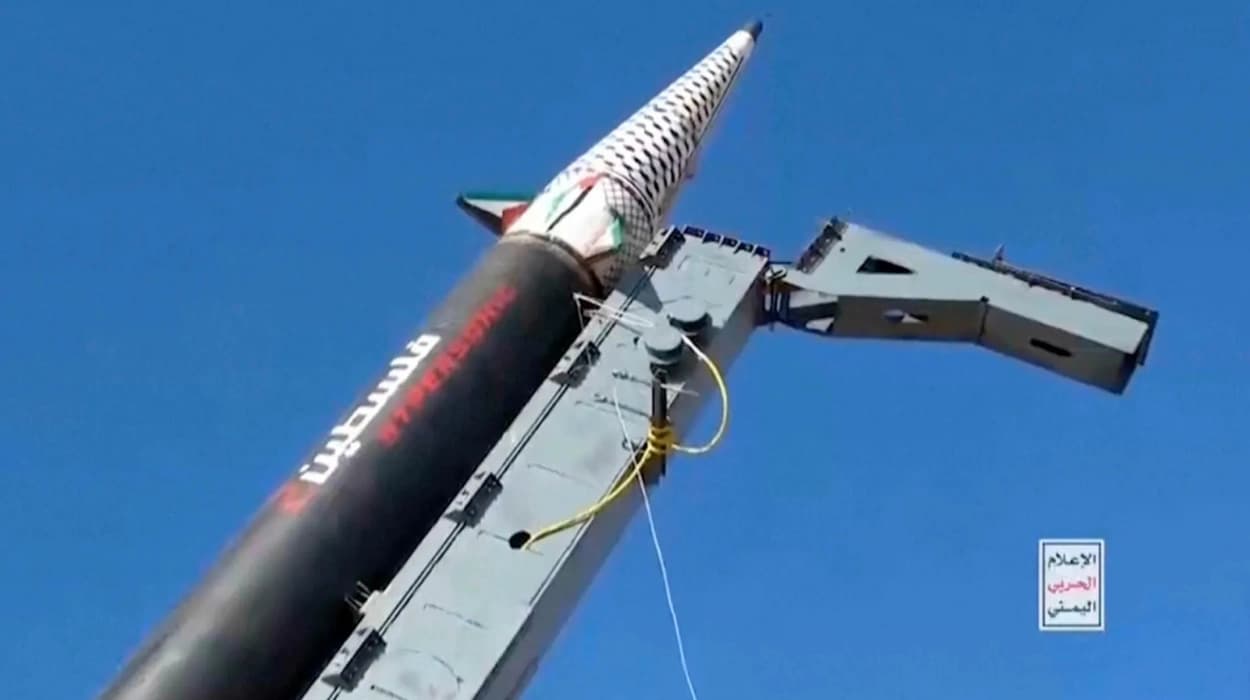Key Points
- Houthis
launched an Iranian-made missile targeting Tel Aviv airport.
- The
missile attack represents a significant escalation in regional tensions.
- Israeli
authorities confirmed interception of the missile, preventing casualties.
- The
attack is part of ongoing hostilities involving Iran-backed groups.
- International
reactions call for de-escalation and caution amid rising conflict.
- The
missile strike occurred amid broader Middle East instability and
diplomatic efforts.
- Israeli
Prime Minister Benjamin Netanyahu condemned the attack.
- The
incident raises concerns about the security of civilian infrastructure in
conflict zones.
What happened in the missile attack on Tel Aviv airport?
As reported by Geo News on 10 July 2025, the Houthis, a
Yemeni armed group supported by Iran, fired an Iranian-made missile targeting
Tel Aviv's main airport in Israel. The missile was intercepted by Israeli
defence systems, averting any casualties or damage to the airport
infrastructure. This attack marks a serious escalation in the conflict dynamics
of the Middle East, particularly involving Iran-backed militias extending their
reach beyond immediate regional borders.
Who are the Houthis and why did they target Tel Aviv
airport?
The Houthis are a Yemeni rebel group that has been engaged
in a prolonged conflict within Yemen and have received backing from Iran. Their
missile strike on Tel Aviv airport appears to be a strategic move to project
power and influence in the region, signalling their capability to strike deep
into Israeli territory. This act is part of a wider pattern of proxy conflicts
where Iran supports groups opposing Israel and its allies. The attack is seen
as retaliation and a message amid ongoing tensions between Israel and
Iran-aligned forces.
Israeli authorities respond to the missile
attack
Israeli defence forces swiftly responded by activating their
missile interception systems, successfully neutralising the threat before it
could cause harm. Israeli Prime Minister Benjamin Netanyahu publicly condemned
the attack, emphasising Israel’s right to defend its citizens and
infrastructure. The government has heightened security measures around critical
sites and reiterated its commitment to counter any threats from hostile groups.
Broader implications of this missile attack
The missile strike on a civilian airport underscores the
escalating risks to non-combatant infrastructure in the Middle East. It
heightens fears of a wider conflict involving multiple state and non-state
actors. According to UN News reports, the region is already grappling with
humanitarian crises, including in Gaza and Yemen, where conflicts have caused
significant civilian suffering. The attack adds pressure on international diplomatic
efforts aimed at stabilising the region and preventing further escalation.
International reaction to the missile
strike
Global leaders and international organisations have
expressed concern over the missile attack. Calls for restraint and dialogue
have been issued to prevent a spiral into broader warfare. The United Nations
and other diplomatic bodies continue to urge all parties to respect
international law and protect civilian lives and infrastructure. The incident
has also renewed discussions about the proliferation of Iranian missile
technology to proxy groups and its impact on regional security.
How does this event fit into the ongoing Middle East
conflict landscape?
This missile attack is part of a complex and multifaceted conflict environment in the Middle East, involving state actors like Iran and Israel and non-state groups such as the Houthis and Hamas. The region continues to experience cycles of violence, with recent years marked by wars in Yemen, Gaza, and tensions in Lebanon and Syria. The strike on Tel Aviv airport is a stark reminder of the fragile security situation and the potential for rapid escalation that threatens regional and global stability.
